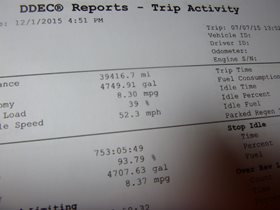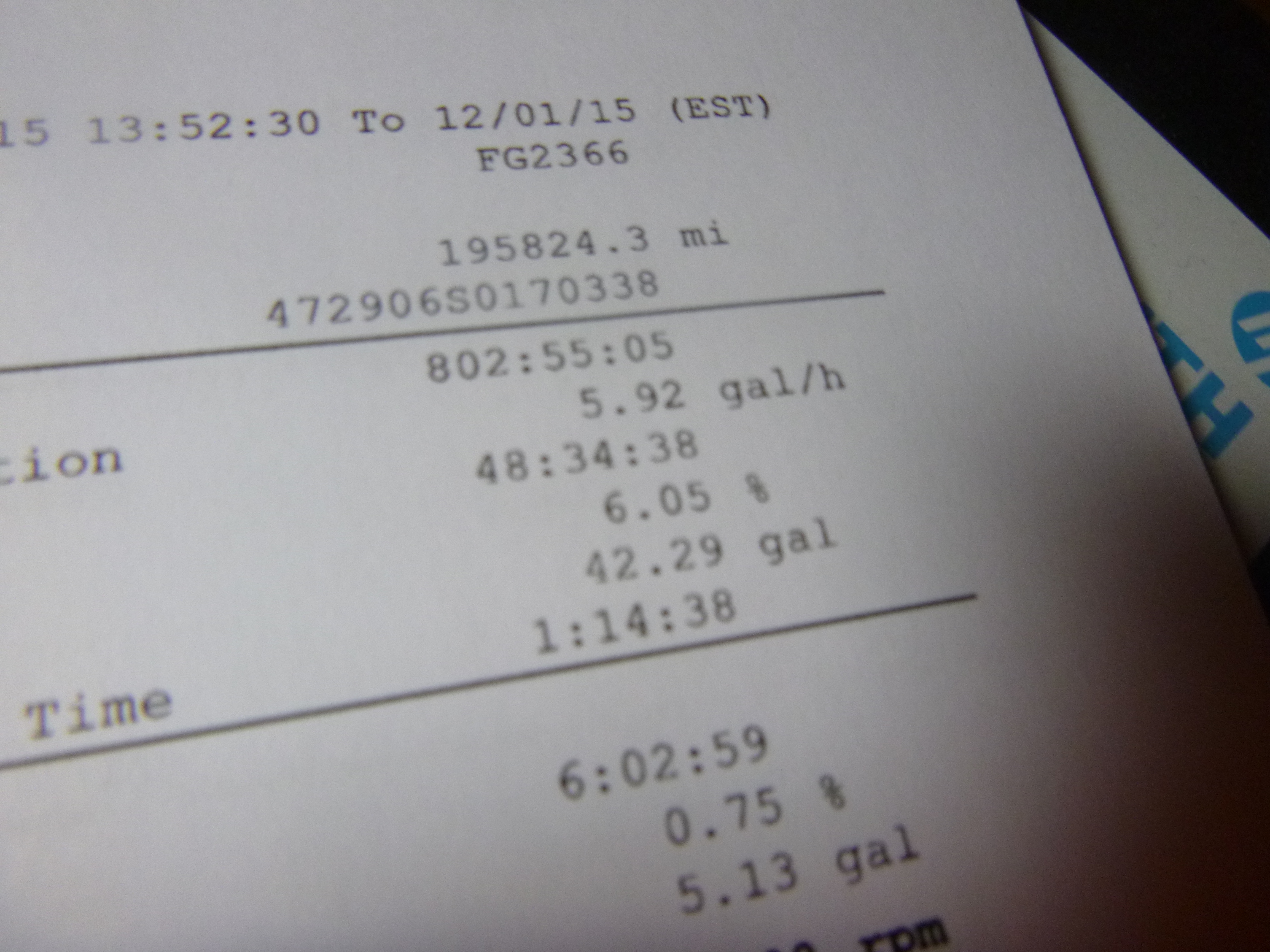As an owner operator, I watch my fuel consumption. I do the right things. My idle time is 6.05%. The acceleration histograms show that I accelerate progressively. My RPM/speed history shows that the

vast majority of my time is spent between 1300-1400 RPM. I spend most of my highway time in cruise control. My measurable hard brakes are few and far between. The lifetime results of 8.3 total lifetime MPG and 8.37 moving MPG show that operating the truck in the proper manner will payoff in the long run.
Over the years, I have read 100s of engine reports. They consistently affirm my belief that if the driver operates a truck properly the results will show it. MPG can vary widely from tankful to tankful even if the driver does all the right things. Factors such as crosswinds can drive up your load factor and drive down your MPG. Short term MPG result can be determined by things out of the professional drivers control. Over the long run though driver input has a great impact on MPG.
Most company fuel bonuses are paid out by actual fuel usage. Say, bonuses are paid on a monthly basis and the driver starts out with a bad week. That driver could correctly determine that the chances of getting the monthly fuel bonus is gone. The incentive for properly driving the truck is gone as well. It is in everyone's best interest to get the driver and the truck to work together – all of the time. Results based MPG bonuses are good. I believe that process based fuel bonuses are better.
A process based bonus program puts the professional driver in complete control. Each individual
.JPG.aspx?width=250&height=187)
company is different. They haul different freight, or have different lengths of haul. That has an effect on MPG, but process still matters. Using a process based program can simplify the bonus. It sends the professional a clear signal that they are completely in control of the bonus.
Educate the drivers on the process. Most of the issues that I see are because no one properly shows the drivers how and why the trucks operate the way they do. Time and time again I have seen drivers frustrated by the “lack of power” in the new engines. Experienced drivers are looking for torque at 1500 RPM, when the actual power band starts to drop off at 1400 RPM or lower. Bring out the torque curve and show the driver where the power is. Respect the professional drivers' ability to learn.
Give the driver attainable goals, and they will try to reach them. Improving MPG leads to other positive results. Drivers who drive for fuel mileage will also have lower maintenance costs. A big part of MPG is driving less aggressively, and you can see that in the hard brake statistics. The idea is to get company and driver working together to their mutual benefit. That can increase company profitability and reduce driver turnover.